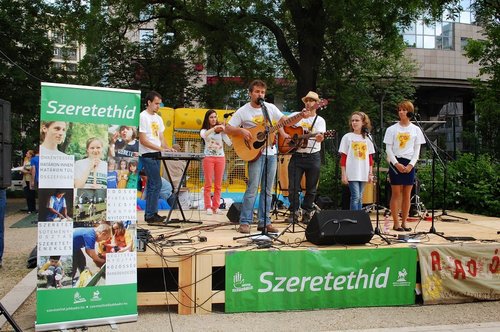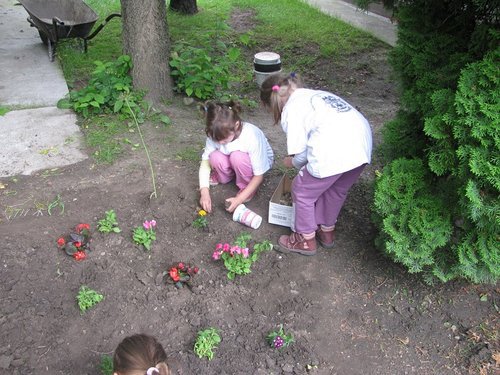Sixteen thousand applicants registered for the Bridge of Love this year, more than ever before. The two-day event is a great opportunity for both young and elderly people to be part of a community and serve for a good cause across the Carpathian Basin.
Bridge of Love was started in 2009 to call the whole Reformed community to act together in terms of social responsibility and to labor across the whole country in small or large groups in social, development or ecological fields; giving real help to villages, institutions, congregations and communities. However the economic crisis could cause the division of families, the initiative wants to show the other opportunity; to take care of our environment and community and help fight their difficulties and problems. The Bridge of Love wants to prevent the isolation of small communities. In 2013 the organizers targets were not only the youth, but they called elderly people as well to act together.
This Saturday the main square of Budapest (Erzsébet tér) was not occupied only by tourists, the opening ceremony of the weekend filled the square with young volunteers. This year they had a different ceremony than usual, with many young participants, members and inhabitants of the charity aid establishments, who sang together and after the concert worked together on the beauty of the square.

“Our role is to help the downtrodden, and look; the downtrodden came to help us.”- said Sándor Pál, Chair of the Board of the Hungarian Reformed Church Aid, at the opening ceremony.
„We say, those people, who work for free, are donkeys… let’s be donkeys for these two days and experience the blessings of volunteering, what Jesus taught us.”- said István Szabó, bishop of the Danubian Reformed Church District.
This year 16,000 volunteers of the Carpathian Basin worked in 340 locations during the two days. Volunteers from the Hungarian Reformed Church Aid Office had the opportunity to work at the Budapest Zoo and Botanical Garden. They painted the fence on the rock of the zoo, having a great view of the zoo’s baby elephant during their work.

Not even the youngest were out of the Bridge of Love volunteering. The members of „Halacska” (Little fish) Kindergarten in Budafok helped in the yard of the kindergarten. In the previous years just the oldest kids participated in the Bridge of Love, but this year all of the kindergarten members, the kindergarten teachers, parents and young congregation members worked in the garden and painted the fence, planted and watered the plants. The program was not complete without visiting the elderly members of the congregation; the oldest kindergarten members gave a short performance for them.
The Bridge of Love didn’t begin just on Friday morning, explained the director of the kindergarten; they started talking about it weeks ago, about the greatness of the love of God and the importance of its transmission and the role of help.
With these examples the congregations, communities and all Reformed people can show that in the depressive times after crisis, the church does not isolate and care only for itself, but takes care of its environment and communities around. We do not close, but open toward the others.
Krisztina Forró